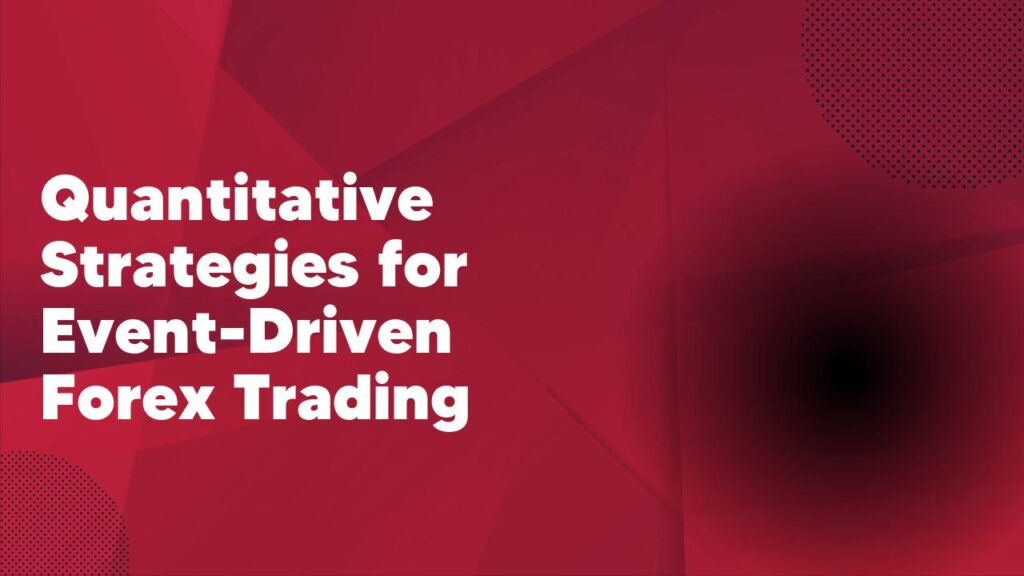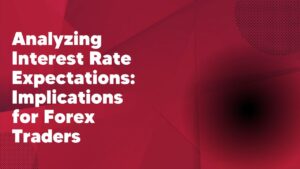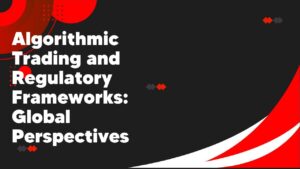In the fast-paced world of forex trading, having a well-developed strategy is crucial for success. One strategy that has gained popularity among traders is event-driven forex trading. This approach involves making trading decisions based on economic events and their impact on currency movements. With the increasing availability of real-time data and advanced technology, quantitative strategies have become a powerful tool in event-driven trading. By using mathematical models and statistical analysis, traders can identify trading opportunities and make informed decisions. This paper aims to explore different quantitative strategies used in event-driven forex trading and evaluate their effectiveness. Through an in-depth analysis of historical data and case studies, we will examine the performance of these strategies and provide insights on how traders can enhance their trading outcomes. Ultimately, this research seeks to provide a valuable resource for traders who are interested in incorporating quantitative methods in event-driven forex trading.
Event-Driven Forex Trading Strategies
Event-driven forex trading strategies are a popular approach used by experienced traders in the forex industry. These strategies focus on taking advantage of market movements that occur as a result of specific events or news announcements. Traders who employ event-driven strategies carefully analyze economic indicators, news releases, and geopolitical events to identify potential trading opportunities. For example, a trader might closely monitor the release of important economic data, such as the Non-Farm Payrolls report, to determine its impact on currency pairs. They may also pay attention to major political events or central bank meetings that could result in market volatility. By understanding the potential impact of these events on the forex market, traders can position themselves to take advantage of price movements that may occur as a result. While event-driven forex trading strategies can be profitable, they require a high level of skill and knowledge. Traders need to have a deep understanding of the fundamentals driving the market and the ability to quickly analyze and react to new information. Additionally, risk management is crucial as market volatility can increase significantly during certain events. Overall, event-driven strategies can be an effective tool for experienced forex traders looking to capitalize on market movements triggered by specific events or news.
Quantitative Approaches to Forex Trading
Quantitative approaches to forex trading have gained significant popularity in recent years, as traders strive to gain a competitive edge in the highly volatile and fast-paced currency markets. These approaches involve the use of mathematical models, algorithms, and statistical analysis to make trading decisions based on data-driven insights. By leveraging these advanced techniques, forex traders aim to identify patterns, trends, and opportunities that may not be immediately apparent to human traders.
One popular quantitative approach is the use of automated trading systems, also known as algorithmic trading or forex robots. These systems are programmed to execute trades based on predetermined criteria and can scan the market, analyze data, and execute trades at speeds and accuracy levels impossible for a human trader to match. This automated approach allows traders to capture trading opportunities in real-time and react to market changes swiftly, even in volatile conditions.
Another quantitative approach to forex trading involves the use of technical indicators and chart patterns to identify potential entry and exit points. Traders use mathematical algorithms to analyze historical price data and identify patterns and trends that may signal future price movements. By combining these technical analysis tools with fundamental analysis, traders can make informed trading decisions and improve their chances of success in the forex market.
Quantitative approaches to forex trading also involve the use of statistical models and probability theories to assess risk and develop trading strategies. These models can be used to identify the probability of certain market events occurring and adjust trading strategies accordingly. By incorporating risk management techniques and optimizing trading strategies using statistical models, traders can minimize losses and maximize profits in the forex market.
Overall, quantitative approaches to forex trading have revolutionized the industry by allowing traders to make data-driven decisions, automate their trading process, and increase their chances of success in the highly competitive forex market. Through the use of advanced mathematical models and algorithms, traders can gain a deeper understanding of market dynamics, improve their trading strategies, and ultimately achieve their financial goals.
Key Factors for Event-Based Trading
Event-based trading in the Forex industry is a strategy that hinges on the analysis of economic and geopolitical events to make informed trading decisions. There are several key factors that traders need to consider when engaging in event-based trading. Firstly, staying updated on economic indicators is crucial as these data points can significantly impact currency values. Traders should closely monitor factors such as interest rates, GDP growth, inflation rates, and employment figures to gauge the health of an economy and identify potential trading opportunities. Additionally, geopolitical events can have a substantial impact on currency movements. Traders should keep a close eye on political developments, such as elections, international trade disputes, and geopolitical tensions, as they can create market volatility and present trading opportunities. It is also essential to have a reliable news source to stay informed about upcoming events and their potential effects on currency markets. Finally, risk management is paramount in event-based trading. Traders should always have clear entry and exit strategies in place, use appropriate stop-loss orders, and avoid overexposure to any one position. By understanding and considering these key factors, traders can enhance their ability to execute successful event-based trading strategies in the Forex market.
Understanding Forex Trading Events
Forex trading events are crucial components of the foreign exchange market, as they significantly impact currency prices and create opportunities for traders. These events encompass a broad spectrum, ranging from economic indicators to geopolitical occurrences. To effectively trade forex, it is imperative to understand the significance of these events and their potential impact on currency pairs. One key event is the release of economic data, such as GDP growth, employment figures, and inflation rates. These releases can lead to volatility in the market, as they provide valuable insights into the health and stability of a country’s economy. On the other hand, geopolitical events, such as political elections or trade wars, can also generate significant fluctuations in currency prices. As these events unfold, traders analyze the potential consequences, adapting their strategies accordingly. Additionally, central bank meetings play a crucial role in forex trading events, as central banks have the power to influence interest rates and monetary policy. Traders closely monitor statements made by central bank officials, as they can provide indications of future interest rate decisions, which in turn affect currency valuations. Overall, understanding forex trading events is vital to navigating the dynamic and ever-changing forex market.
Implementing Quantitative Methods in Forex Trading
Implementing quantitative methods in forex trading is an effective way to analyze market patterns and make informed trading decisions. By using mathematical models and statistical analysis, traders can identify trends, determine entry and exit points, and manage risk more efficiently. One popular quantitative method is algorithmic trading, where computer programs automatically execute trades based on predetermined rules and conditions. These algorithms can process vast amounts of data in real-time and react to market movements much faster than humans. Another quantitative method is technical analysis, which involves using charts and indicators to forecast price movements. By applying quantitative techniques, traders can remove emotion and bias from their decision-making process, relying instead on data and proven strategies. However, it is important for traders to understand the limitations and risks associated with quantitative methods. While these tools can provide valuable insights, they are not foolproof and cannot guarantee profitable trades. Traders should continue to stay informed about market news and developments and exercise caution when relying solely on quantitative analysis. Ultimately, a balanced approach that incorporates both quantitative and qualitative factors is key to successful forex trading.
Analyzing Market Data for Event-Driven Trading
When it comes to event-driven trading in the Forex market, analyzing market data is of utmost importance. Market data includes various types of information such as economic indicators, company news, political developments, and market sentiment. To effectively analyze this data, traders need to have a solid understanding of fundamental analysis and technical analysis. Fundamental analysis involves assessing the overall health of an economy or a company by analyzing macroeconomic data, company financials, and industry news. This helps traders identify potential market-moving events and their potential impact on currency pairs. On the other hand, technical analysis involves the use of charts, patterns, and indicators to identify trends and make predictions about future price movements. By combining these two types of analysis, traders can gain a comprehensive picture of the market and make informed trading decisions. It is also important for traders to use reliable sources of market data and stay updated with the latest news and developments. This allows them to react quickly to market events and take advantage of potential profit opportunities. In conclusion, analyzing market data is an essential skill for event-driven traders in the Forex industry, and it requires a blend of fundamental and technical analysis along with staying informed about current market trends.
Maximizing Profit Potential in Forex Trading
Maximizing profit potential in Forex trading requires a strategic approach and a deep understanding of the market dynamics. Firstly, one must develop a well-defined trading plan that outlines investment goals, risk tolerance, and the preferred trading strategy. This plan serves as a roadmap and helps in making informed trading decisions. Secondly, traders must conduct thorough research and analysis to identify potential trading opportunities. This involves staying updated with global economic indicators, geopolitical events, and market trends. Technical analysis tools and indicators can be utilized to spot entry and exit points. Thirdly, risk management plays a crucial role in maximizing profits. Setting appropriate stop-loss levels and position sizing helps in limiting potential losses and protecting capital. Additionally, implementing proper risk-reward ratios ensures that the potential profit outweighs the potential risk. Fourthly, traders should continuously educate themselves and stay disciplined. The Forex market is highly volatile, and having the knowledge and discipline to adapt to changing market conditions is essential. Finally, it is crucial to periodically review and evaluate trading performance. This helps in identifying strengths, weaknesses, and areas for improvement. Utilizing trading journals and record keeping allows for better decision-making and fine-tuning of trading strategies. By following these steps, traders can increase their chances of maximizing profit potential in the Forex market.
Tips for Successful Event-Based Forex Trading
Event-based forex trading can be a highly profitable strategy if approached with the right mindset and preparation. Here are some tips for successful event-based forex trading. Firstly, it is crucial to stay updated on relevant economic events and news releases as they can have a significant impact on currency movements. This can be done by following reputable financial news sources and utilizing economic calendars. Having a solid understanding of the expected market reaction to these events is also essential, as it will help you make informed trading decisions. Secondly, risk management should be a top priority when event-based trading. It is crucial to set stop-loss orders to limit potential losses and to not overexpose yourself to high-risk events. Thirdly, it is important to analyze the market sentiment leading up to the event. This can be done by studying the reactions of other traders and the market’s reaction in similar past events. Additionally, having a clear trading plan in place, including entry and exit strategies, will help you stay disciplined and make better-informed decisions. Lastly, it is important to practice patience and not rush into trades. Sometimes, it may be more beneficial to wait for the market to settle after a major event before entering a trade. By implementing these tips, event-based forex traders can increase their chances of success and profitability.
Conclusion
In conclusion, quantitative strategies have proven to be effective in event-driven forex trading. Through the analysis of various economic indicators, news events, and market volatility, these strategies can identify profitable trading opportunities and minimize risks.
The use of quantitative models and algorithms allows traders to make data-driven decisions based on historical data and market patterns. This helps eliminate emotions and biases that often impact trading decisions.
Additionally, the automation of these strategies through trading algorithms ensures speed and accuracy in executing trades. This is essential in event-driven trading, where market conditions can change rapidly.
Furthermore, quantitative strategies provide a systematic approach to trading, providing consistent results over time. By backtesting and optimizing these strategies, traders can fine-tune their models and improve upon their performance.
Overall, quantitative strategies are a valuable tool for event-driven forex trading, providing traders with a competitive edge in the ever-changing forex market.
Frequently Asked Questions
1. What are quantitative strategies for event-driven Forex trading?
Quantitative strategies for event-driven Forex trading involve using mathematical models and algorithms to identify and capitalize on trading opportunities arising from specific events, such as economic releases, news announcements, or geopolitical events.
2. How do quantitative strategies differ from traditional trading approaches?
Quantitative strategies rely on data analysis and automated decision-making processes to execute trades, while traditional trading approaches often involve human judgment and discretion. Quantitative strategies aim to remove emotional biases and improve trading efficiency.
3. What data is typically used in quantitative strategies for event-driven Forex trading?
Data used in quantitative strategies can vary but may include economic indicators, news sentiment analysis, market volume, price movements, and historical financial data. The analysis of this data helps traders identify patterns and develop trading strategies.
4. Are quantitative strategies suitable for all traders?
Quantitative strategies require a deep understanding of mathematical models and algorithmic trading techniques. While they can be highly profitable, they may not be suitable for novice traders or those without the necessary technical skills and knowledge.
5. What are the advantages of using quantitative strategies for event-driven Forex trading?
Some advantages of using quantitative strategies include increased execution accuracy, faster decision-making processes, reduced emotional biases, and the ability to analyze vast amounts of data in a systematic manner. These factors can lead to improved trading performance.
6. How can I get started with quantitative strategies for event-driven Forex trading?
To get started with quantitative strategies, it is recommended to gain a solid understanding of mathematical models, statistics, programming languages, and data analysis techniques. There are also online courses, books, and resources available that can help beginners learn and develop their skills in quantitative trading.


